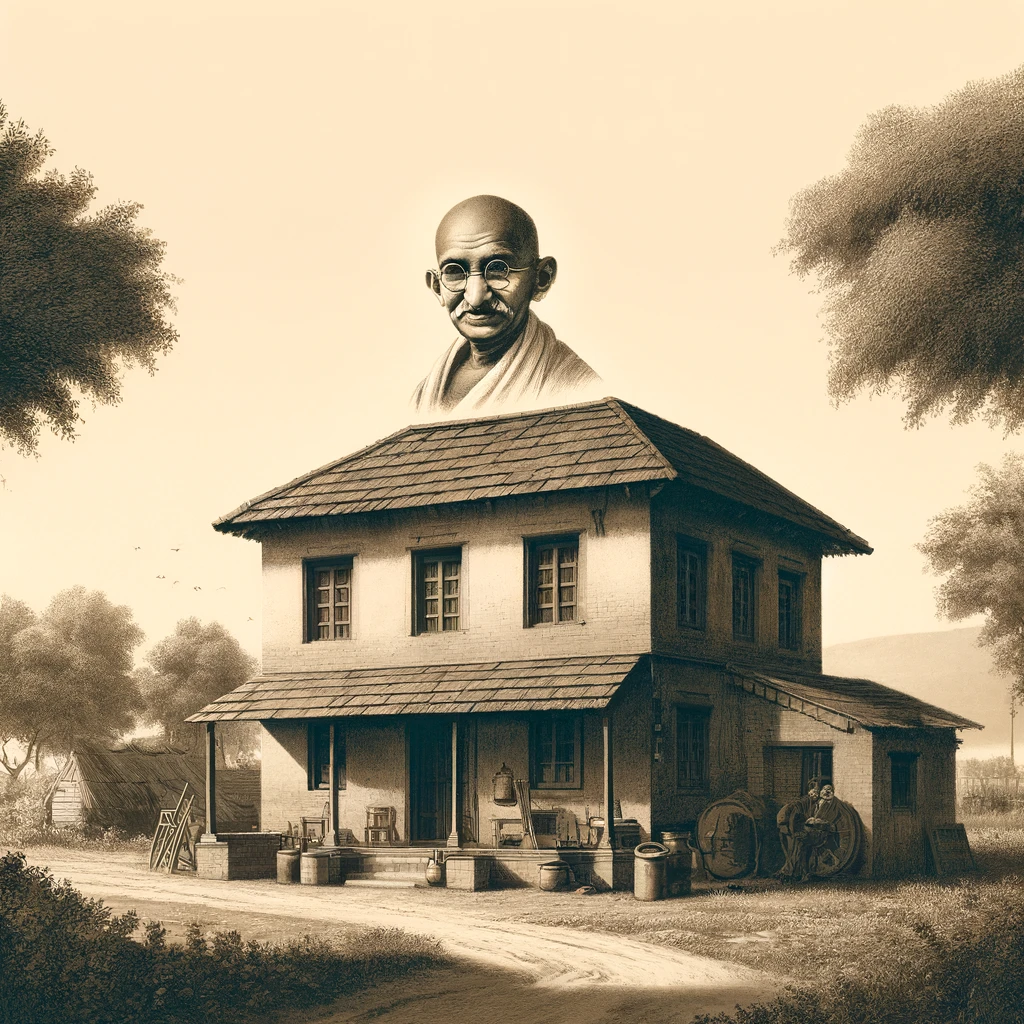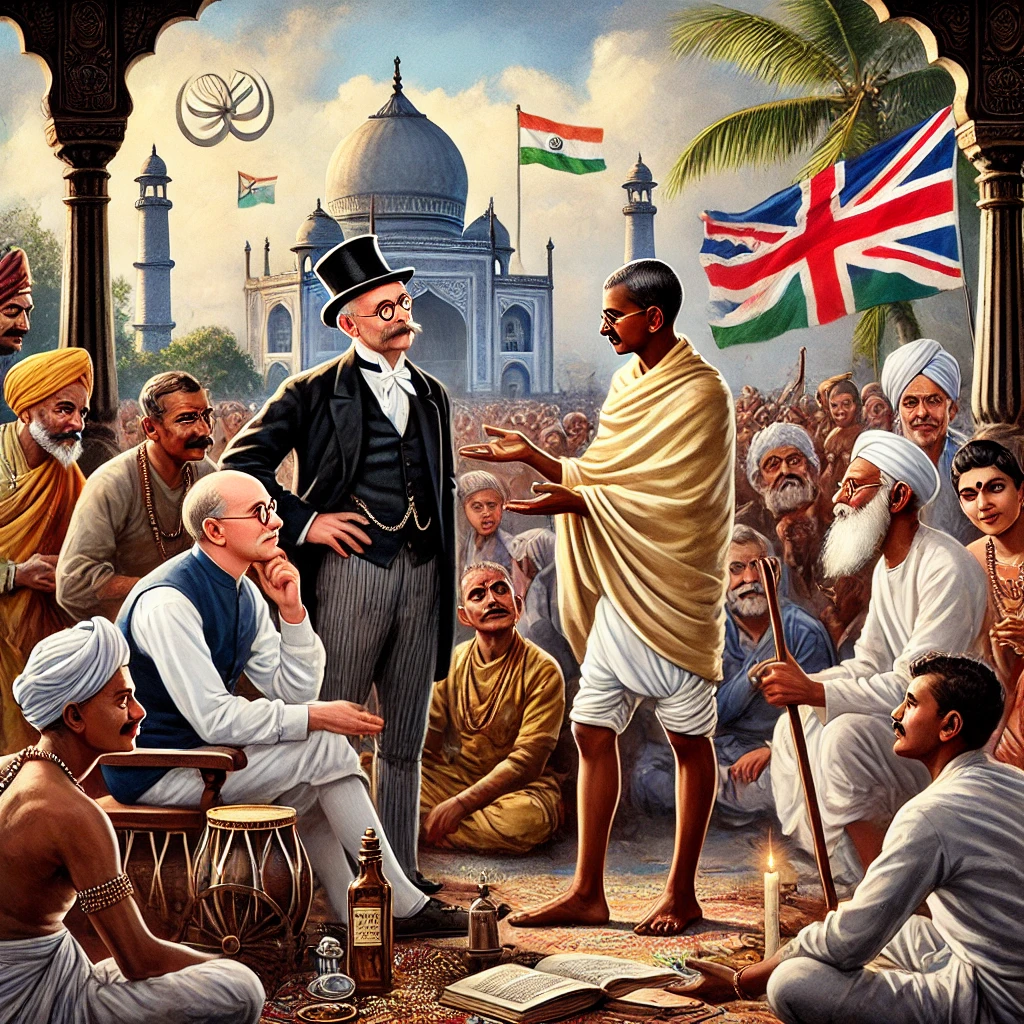On October 2, 1869, a figure was born in Porbandar, India, who would later become one of the most influential leaders in the struggle for civil rights and freedom around the world—Mohandas Karamchand Gandhi, widely known as Mahatma Gandhi. His philosophy of nonviolent resistance and civil disobedience would not only shape the course of India’s independence movement but also inspire global movements for justice and equality. Gandhi’s birth marked the beginning of a legacy that continues to resonate with advocates for peace and social change today.

Early Life and Influences
Gandhi was born into a middle-class family, and his early experiences in India were shaped by traditional Indian culture and values. He later traveled to England to study law, where he was exposed to Western ideas of justice and democracy. It was during his time in South Africa, where he faced racial discrimination firsthand, that Gandhi developed his philosophy of Satyagraha, or “truth-force,” which advocated for nonviolent resistance against oppression.
His experiences in South Africa were pivotal, as he organized the Indian community against discriminatory laws, laying the groundwork for his future activism. This period also helped him refine his approach to activism, emphasizing the power of nonviolent protest to effect social change. The lessons he learned during these formative years would become central to his strategies in India.

The Indian Independence Movement
Returning to India in 1915, Gandhi became a key figure in the Indian National Congress, advocating for self-rule and independence from British colonial rule. His leadership during pivotal campaigns, such as the Non-Cooperation Movement and the Salt March in 1930, exemplified his commitment to nonviolence and civil disobedience. The Salt March, a 240-mile protest against British salt taxes, became a significant moment in the struggle for Indian independence, galvanizing support and drawing international attention to the cause.
Gandhi’s ability to mobilize millions of Indians, regardless of caste or class, was revolutionary. He inspired people from all walks of life to join the struggle for freedom, emphasizing unity and peaceful resistance. His teachings and actions helped reshape Indian society, promoting values of tolerance, nonviolence, and social justice.
Global Impact and Legacy
The influence of Gandhi extended far beyond India’s borders. His philosophy of nonviolent resistance inspired numerous civil rights movements around the world, most notably the American civil rights movement led by Martin Luther King Jr. King adopted Gandhi’s principles of nonviolent protest, emphasizing the power of love and compassion in the face of injustice.

Gandhi’s legacy can be seen in various global movements advocating for human rights, social justice, and environmental sustainability. His teachings have inspired leaders such as Nelson Mandela in South Africa and Aung San Suu Kyi in Myanmar, demonstrating the enduring power of nonviolence as a means of resistance. The principles of peace and justice that Gandhi championed continue to resonate in contemporary discussions about activism and social change.
October 2nd, the day of Gandhi’s birth, is celebrated as the International Day of Non-Violence. This recognition underscores the relevance of Gandhi’s teachings in today’s world, where violence and conflict persist in many forms. The observance encourages individuals and communities to promote nonviolence through education and advocacy, reaffirming the importance of peaceful solutions to conflict. As we commemorate Gandhi’s birth, we are reminded of the power of nonviolent resistance in achieving social change. The International Day of Non-Violence serves as an opportunity to reflect on the impact of Gandhi’s legacy and to promote dialogue and understanding as means of resolving conflicts.
